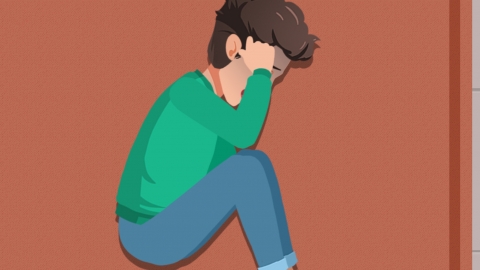What are the symptoms and risks of bodily dehydration?
After the body becomes dehydrated, a series of typical symptoms may appear, and various health risks can also arise. Common symptoms include dry mouth, reduced urine output, dizziness and fatigue, dry skin, and sunken eyes. Potential complications include electrolyte imbalances, kidney damage, increased cardiovascular strain, digestive system disturbances, and impaired cognitive function. The details are as follows:

I. Symptoms
1. Dry mouth and tongue: Reduced mucus secretion from oral mucosa leads to a noticeable dry sensation, often accompanied by throat discomfort and difficulty swallowing. This is the most direct early sign of dehydration.
2. Decreased urine output: The kidneys concentrate urine to minimize water loss, resulting in fewer trips to the bathroom, darker yellow or even amber-colored urine, and significantly lower urine volume than normal.
3. Dizziness and fatigue: Reduced blood volume leads to decreased blood and oxygen supply to the brain, causing dizziness, headaches, and poor concentration. At the same time, muscle cells deprived of water experience impaired energy metabolism, leading to general weakness and reduced physical endurance.
4. Dry skin: Skin loses moisture and becomes dry and rough, with reduced elasticity. When pinched and released, the skin returns to its original state more slowly than usual.
5. Sunken eyes: Loss of fluid in the tissues around the eyes causes the eye sockets to appear deeply set. The conjunctiva may become dry, possibly accompanied by blurred vision and eye irritation.
II. Health Risks
1. Electrolyte imbalance: During dehydration, electrolytes such as sodium and potassium are lost along with fluids, disrupting balance. This may lead to muscle cramps, spasms, and in severe cases, impair nerve and muscle function, causing limb weakness and cardiac arrhythmias.
2. Kidney damage: Prolonged kidney stress from concentrating urine increases the concentration of metabolic waste in the urine, raising the risk of kidney stone formation. Insufficient blood flow may also cause damage to renal tubules, impairing normal filtration function.
3. Increased cardiovascular burden: Reduced blood volume forces the heart to work harder, increasing heart rate and potentially lowering blood pressure. In severe dehydration, this may lead to hypotension or shock, which can be life-threatening.
4. Digestive system disturbances: Dehydration of the intestinal mucosa slows peristalsis and reduces digestive secretions, leading to poor appetite, bloating, and constipation. Severe cases may result in indigestion and intestinal dysfunction.
5. Impaired cognitive function: Brain dehydration affects neuronal activity, leading to slowed thinking, delayed reactions, and memory decline. In children, dehydration may also impair attention and learning ability.
When signs of dehydration occur in daily life, mild cases can be relieved by drinking warm water. However, severe dehydration requires prompt medical attention for fluid replacement. Special populations such as the elderly, children, and individuals with chronic diseases should pay extra attention to hydration to prevent dehydration.










